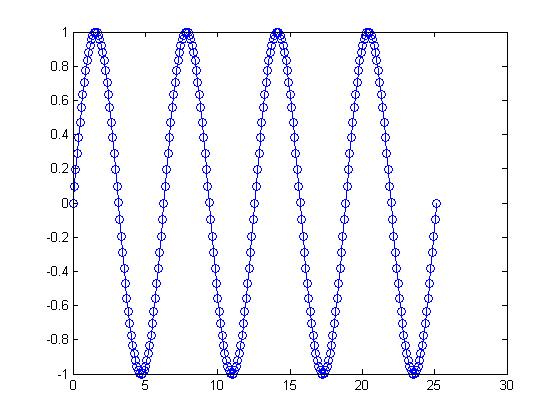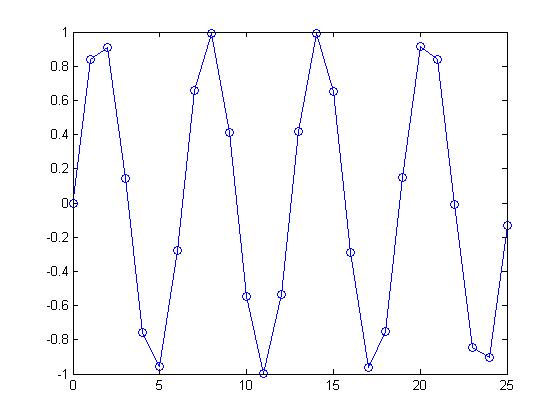| Line 3: | Line 3: | ||
x(t)=sin(t) from 0 to 8*pi | x(t)=sin(t) from 0 to 8*pi | ||
| + | This function is periodic as long as it is evaluated at values of 2*pi invtervals. | ||
[[Image:thing2_ECE301Fall2008mboutin.jpg]] | [[Image:thing2_ECE301Fall2008mboutin.jpg]] | ||
| + | |||
| + | |||
| + | |||
| + | The way this function can be non periodic is if it is evaluated at integer values for a given t in a function. | ||
| + | |||
| + | <pre> | ||
| + | t=0:1:25 | ||
| + | x=sin(t) | ||
| + | plot(t, x, '-o') | ||
| + | </pre> | ||
| + | |||
| + | [[Image:thing3_ECE301Fall2008mboutin.jpg]] | ||
Revision as of 11:42, 12 September 2008
Periodic Function
I chose the function that Nicholas Browdues has used in the previous Homework 1 assignment as my reference signal. x(t)=sin(t) from 0 to 8*pi
This function is periodic as long as it is evaluated at values of 2*pi invtervals.

The way this function can be non periodic is if it is evaluated at integer values for a given t in a function.
t=0:1:25 x=sin(t) plot(t, x, '-o')


